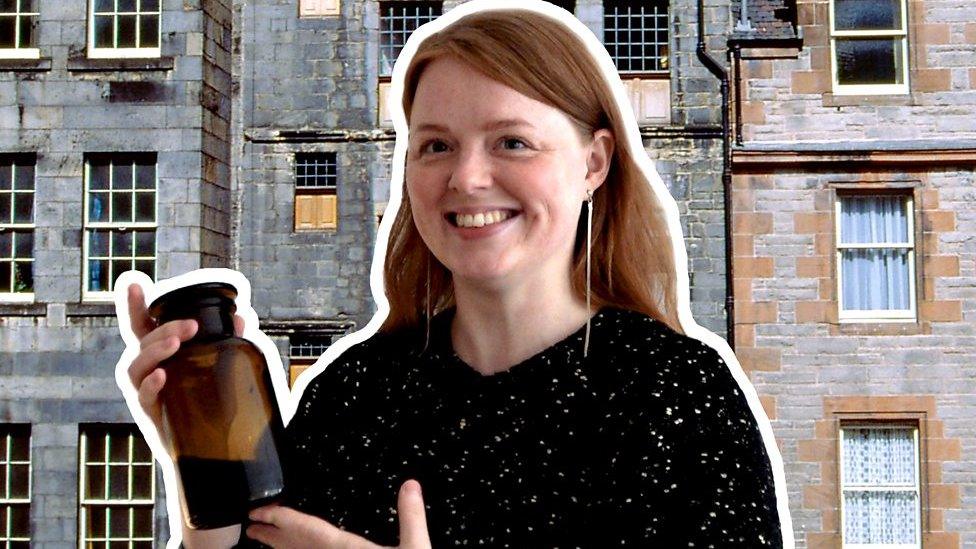University smells project to recreate historic industrial and perfumed aromas
- Published
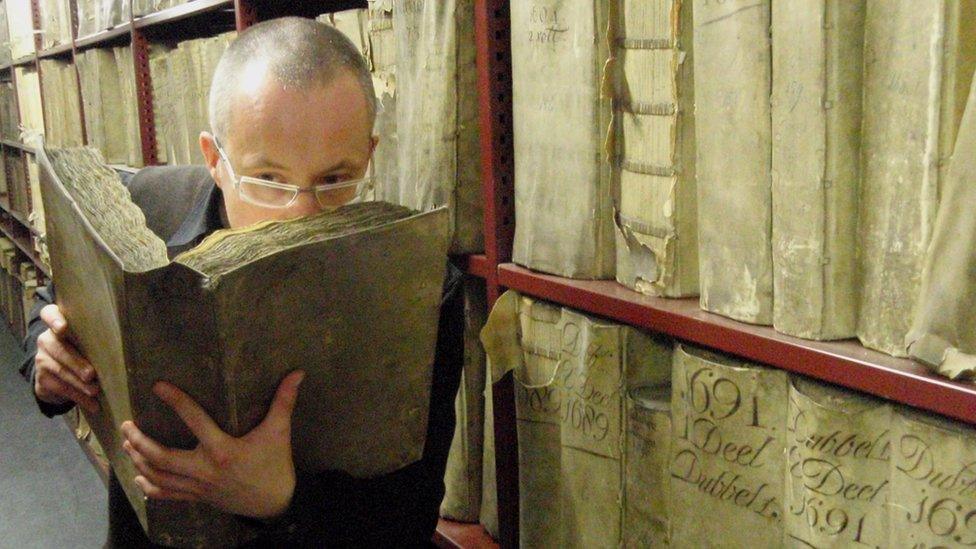
Professor Matija Strlic smelling an historic book in the National Archives of The Netherlands
The "foul and fragrant" smells of our past from industry to Marie Antoinette's perfume are to be recreated in a £2.5m European project.
Anglia Ruskin University is helping to build an archive of smells from the 16th to early 20th Centuries.
Dr William Tullet, Cambridge-based smell historian, said as they were central to daily lives they "deserve to have a history".
The findings will be shared online and in museums across Europe next year.
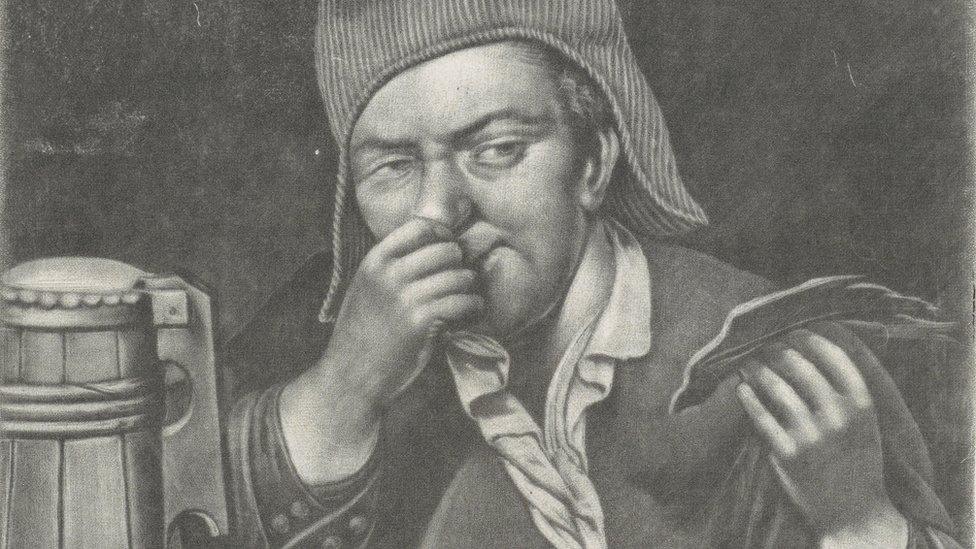
A Dutch illustration of the sense of smell from about 1680, artist unknown
The Odeuropa project, external, will bring together historians, artificial intelligence (AI) experts, chemists and perfumers from The Netherlands, Germany, Italy, France, Slovenia and the UK.
It is hoped they will recreate scents that mimic the chemical and manufacturing processes redolent of the Industrial Revolution.
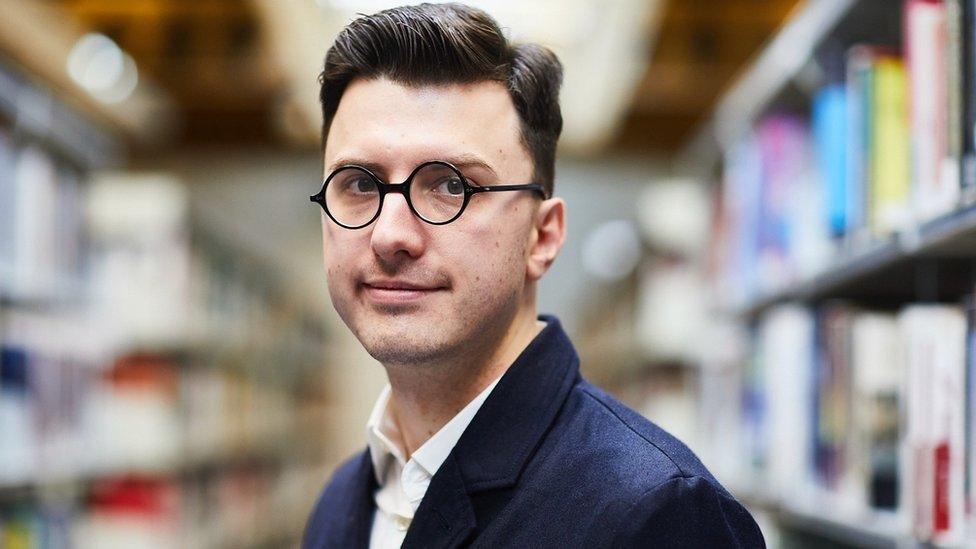
Dr William Tullett said "we know very little of smells of the past"
Dr Tullett said: "We'd imagine that the past was a very smelly place.
"We live in a much cleaner, nicer world today, but one of the points of the project is to get us away from just obsessing about the stinky past and trying to encourage people to think of the foul and the fragrant.
"Covid-19 has illustrated the profoundly negative effects that smell loss - a symptom and side-effect of the disease - can have on our mental and physical wellbeing.
"The pandemic has highlighted the fragility of our sensory surroundings and the need to preserve the smells that have meanings to communities."
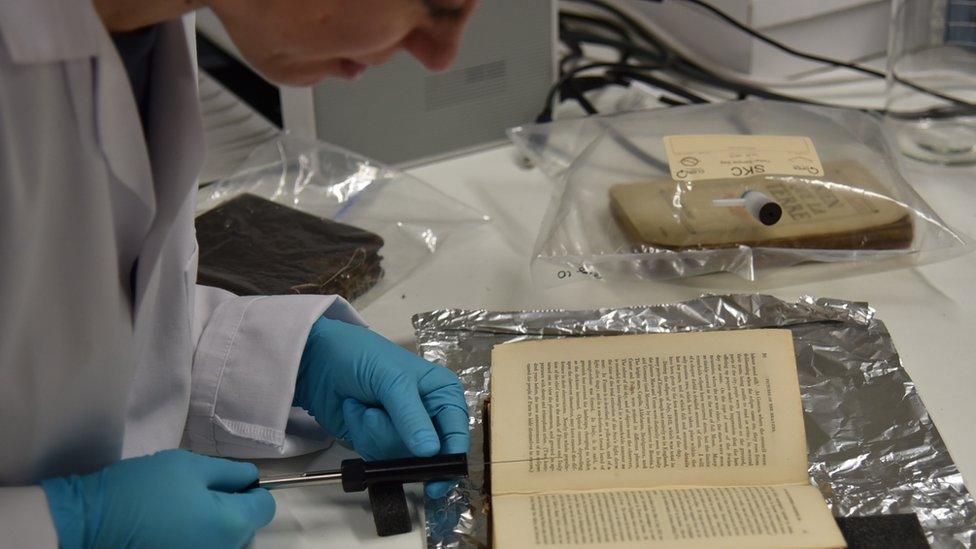
The smell of an old book being extracted in the Heritage Science Lab at University College London
The project will use AI computers to find references to smells such as disease-fighting perfumes and tobacco in historic literature and paintings.
It will then attempt to recreate them with the help of chemists and perfumers, the Cambridgeshire and Essex-based university said.
Peter Bell, professor of digital humanities at Friedrich-Alexander Universität in Erlangen, Germany, said: "We want to teach the computer to see a smell.
"Our goal is to develop a 'computer nose' able to trace scents and olfactory experiences in digital texts over four centuries and seven languages."
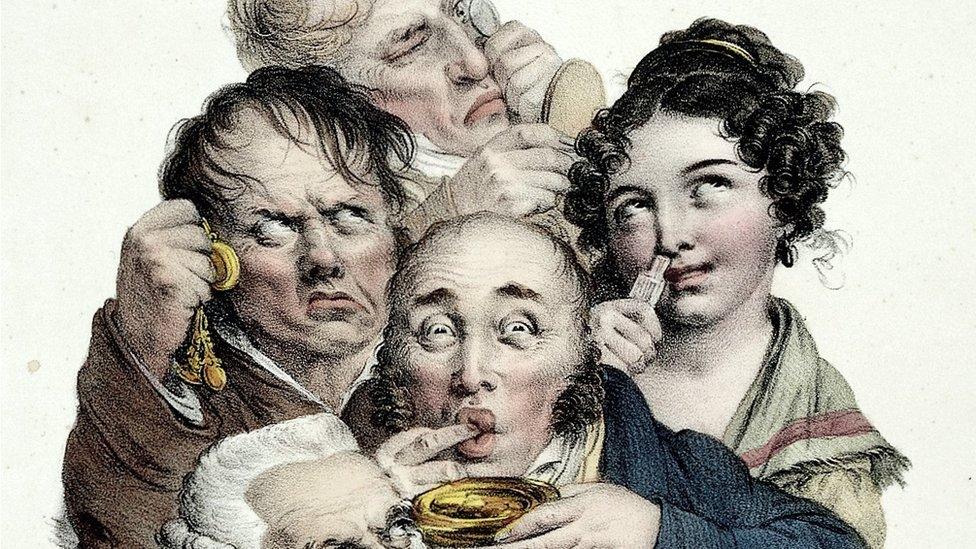
A coloured lithograph of some of the human senses - smell, touch, taste, hearing and sight

Find BBC News: East of England on Facebook, external, Instagram, external and Twitter, external. If you have a story suggestion email eastofenglandnews@bbc.co.uk, external
- Published2 October 2020
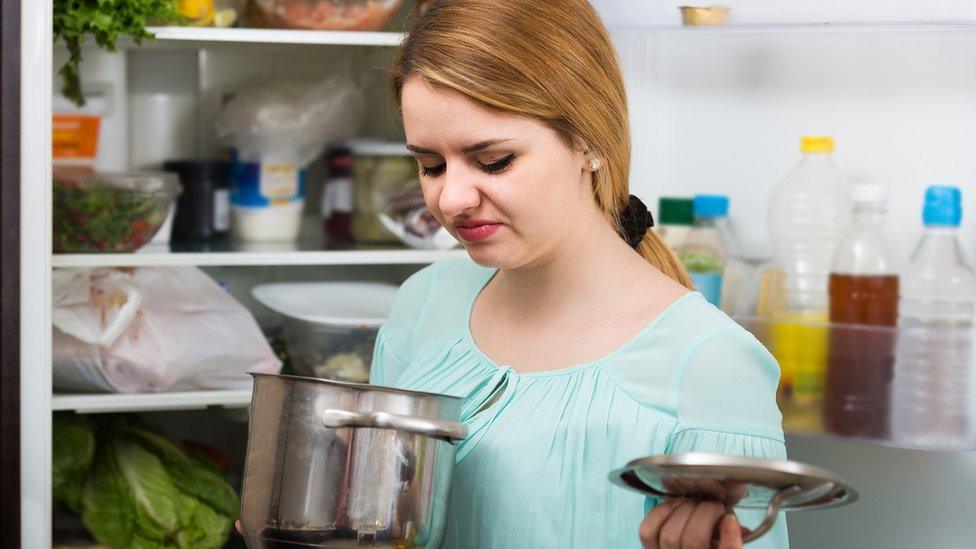
- Published3 July 2020
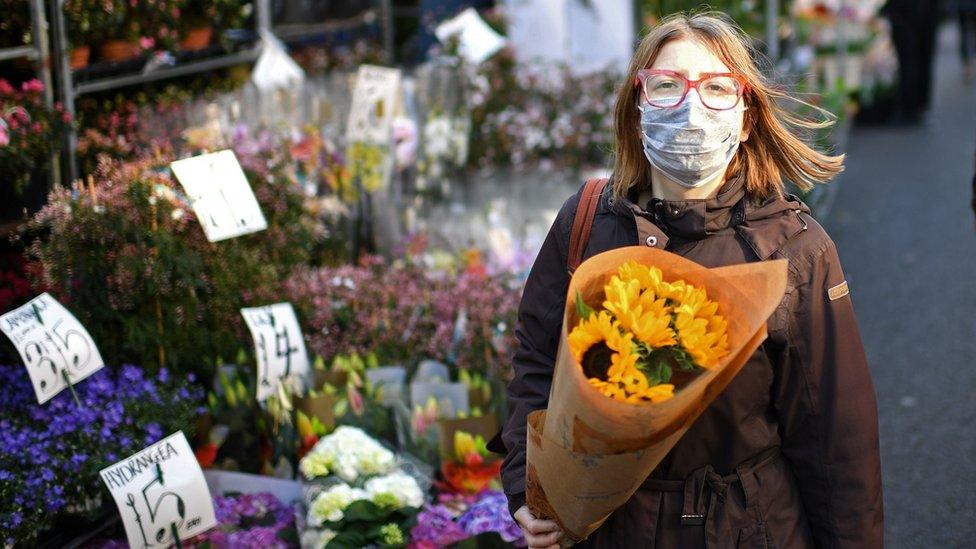
- Published18 May 2020
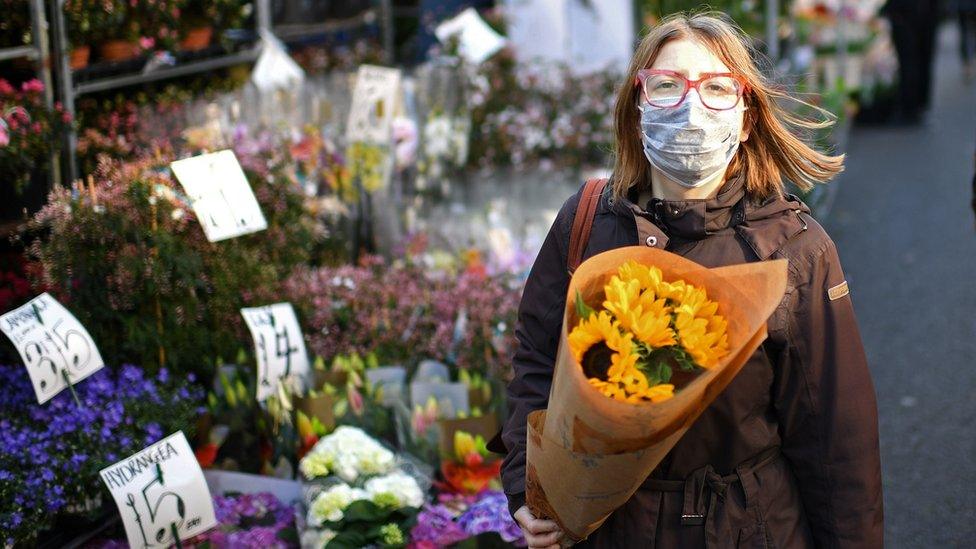
- Published14 November 2019
